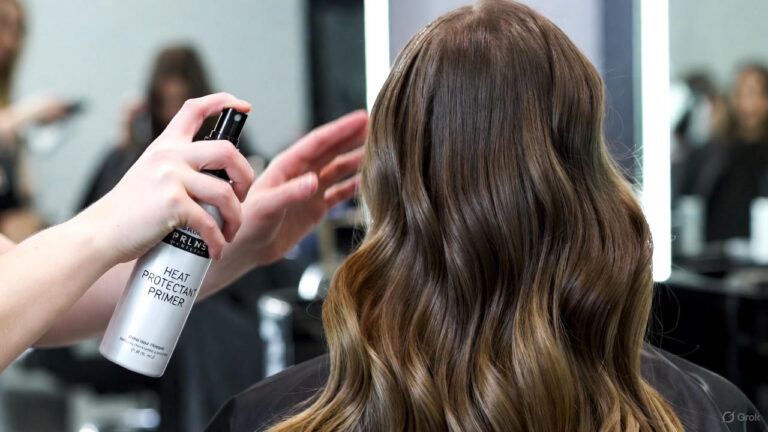Vitamin C serums have become a staple in many skincare routines. Renowned for their antioxidant properties and ability to promote collagen production, Vitamin C serums can be a game-changer. However, the market is flooded with options, and choosing the right serum can be a daunting task.
In this article, we’ll explore five common mistakes individuals make when selecting Vitamin C serums, providing you with insights to make informed decisions for your skincare regimen.
1. Ignoring the Concentration Levels
One of the most prevalent mistakes individuals make when choosing a Vitamin C serum is overlooking the concentration levels. Vitamin C serums come in various concentrations, usually measured in percentages. Higher concentrations may offer more potent results, but they can also be harsh on the skin, especially for those with sensitive skin types.
Understanding the concentration of Vitamin C in a serum is crucial for achieving desired results without causing skin irritation. Lower concentrations, typically around 10-20%, are suitable for individuals with sensitive skin or those new to Vitamin C products.
On the other hand, concentrations of 20-30% may be more appropriate for those with resilient skin and specific skincare concerns. It is essential to gradually introduce higher concentrations to allow the skin to acclimate and minimize the risk of irritation.
2. Overlooking Ingredient Compatibility
Another common mistake is neglecting to consider ingredient compatibility when choosing a Vitamin C serum. Some skincare ingredients, when combined, can enhance each other’s effectiveness, while others may cause irritation or diminish the benefits.
Vitamin C can be paired with other beneficial ingredients like Vitamin E and ferulic acid, which can boost its antioxidant properties. However, combining Vitamin C with certain ingredients, such as benzoyl peroxide or retinol, may lead to instability and reduce efficacy.
It’s crucial to read product labels carefully and, when in doubt, seek advice from dermatologists or skin care professionals to ensure compatibility and maximize the benefits of your skincare routine.
3. Opting for Unstable Formulations
Choosing a Vitamin C serum with an unstable formulation is a mistake that can undermine its effectiveness. Vitamin C is notoriously unstable and can degrade when exposed to light, air, or improper storage conditions.
To ensure the stability and efficacy of Vitamin C serums, it’s essential to look for formulations that are packaged in opaque or dark glass bottles, which protect the product from light exposure. Air-tight containers and pump dispensers can also help prevent oxidation.
Additionally, some Vitamin C derivatives, such as ascorbic acid phosphate or sodium ascorbyl phosphate, are more stable than pure ascorbic acid, making them suitable alternatives for those concerned about product degradation.
4. Neglecting Skin Type and Concerns
A mistake often made by individuals is neglecting to consider their specific skin type and concerns when selecting a Vitamin C serum. Different formulations cater to various skin types, and understanding your skin’s needs is crucial for achieving optimal results.
Individuals with oily or acne-prone skin may benefit from Vitamin C serums with lightweight, water-based formulations, while those with dry skin may find serums with hydrating ingredients more suitable.
Moreover, individuals with hyperpigmentation concerns should look for Vitamin C serums with additional brightening agents. Understanding your skin type and concerns allows you to choose a Vitamin C serum tailored to address your unique skincare needs.
5. Falling for Marketing Hype
In the competitive world of skincare, falling for marketing hype is a common pitfall. Many individuals make the mistake of choosing a Vitamin C serum solely based on attractive packaging, celebrity endorsements, or exaggerated claims, without scrutinizing the product’s actual ingredients and formulation.
It’s crucial to be discerning when evaluating Vitamin C serums and not be swayed solely by marketing tactics. Reading customer reviews, researching the brand’s reputation, and consulting skincare professionals can provide valuable insights.
Pay attention to the ingredient list, ensuring that Vitamin C is a prominent and stable component, rather than being overshadowed by less effective ingredients.
Conclusion
Choosing the right Vitamin C serum is a pivotal step in achieving healthy, radiant skin. By avoiding common mistakes such as neglecting concentration levels, overlooking ingredient compatibility, opting for unstable formulations, neglecting skin type and concerns, and falling for marketing hype, you can make informed decisions for your skincare routine. Remember to prioritize stability, compatibility, and your unique skin needs when selecting a Vitamin C serum, and always seek professional advice if uncertain.
FAQs
Q1: Can I use a high concentration Vitamin C serum if I have sensitive skin?
It’s advisable to start with lower concentrations (around 10-20%) and gradually increase as your skin builds tolerance. High concentrations may cause irritation for those with sensitive skin.
Q2: How do I know if a Vitamin C serum is stable?
Look for serums packaged in dark or opaque bottles, as they protect the product from light exposure. Air-tight containers and pump dispensers also help prevent oxidation.
Q3: Can I combine Vitamin C with other skincare ingredients?
Yes, Vitamin C can be combined with compatible ingredients like Vitamin E and ferulic acid to enhance its antioxidant properties. However, certain combinations, such as Vitamin C with retinol, should be approached cautiously to avoid potential irritation.



